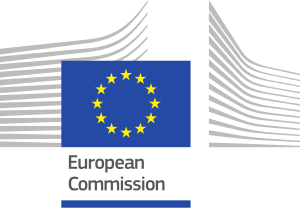Early Dialogues for Medical Devices
EUnetHTA multi-HTA Early Dialogues for Medical Devices (EUnetHTA multi-HTA EDMD) represent a single gateway for early dialogues with European HTA bodies (HTAB) on their evidence-generation plans for Medical Devices. EUnetHTA multi-HTA EDMDs involve HTAB, Industry and relevant stakeholders (notably patients and healthcare professionals).
The main benefits of EUnetHTA EDMD include:
- Streamlined procedure for applicants;
- Increased mutual understanding and problem-solving ability between HTA bodies through a structured interaction;
- Improved coordination with, and greater participation of HTAB in EDs through a unique contact point: the EUnetHTA ED Secretariat at HAS and the nomination of an HTAB Scientific Coordinator at the beginning of each ED;
- The EUnetHTA ED Secretariat facilitates the centralised recruitment of HTA bodies. Patient representatives and healthcare professionals may also participate in the Parallel Consultation procedure on a routine basis so that their views and experiences are incorporated into discussions.
- All participants are subject to the EUnetHTA rules for declaration of conflict of interest and confidentiality.
- Please note that the procedure may evolve based on feedback received from participants (internal and external stakeholders) via a post-ED questionnaire.
The EDMD procedure lasts approximately 4 months with the following key steps:
- Briefing book submitted by Applicant;
- Compiled List of Issues raised by HTAB;
- Applicant’s written response to List of Issues and related slides for the face-to-face (F2F)Meeting;
- F2F Meeting;
- EUnetHTA Final Consolidated Written Recommendation sent to Applicant.
The advice given during a EUnetHTA Multi-HTA EDMD:
- Provides for both common advice (where the participating HTABs are in agreement) but also allows room for individual HTAB positions;
- Is based on the global evidence generation plan submitted by the Applicant in the EDMD Application and is valid only within this context;
- Is non-binding both for HTABs and for Applicants as recommendations are based on the state of science at the time the advice is given;
- Does not predetermine the outcome of the assessment performed later by the individual HTA agencies on that technology.
The Early Dialogues for Medical Devices Working Party (EDMD WP)
The Early Dialogues for Medical Devices Working Party (EDMD WP) has been established by EUnetHTA to ensure robust high-quality HTA outputs for Medical Device EDs. Except in rare cases (i.e. product outside of HTAB remit) all EDMD WP members will systematically participate in EDMD. Currently, the EDMD WP is composed of the following HTA bodies: Current members of the EDMD WP are: AVAILA-T (ES), HAS (FR), NICE (UK), and RER (IT). The primary responsibilities of the EDMD WP include:
- Assessment all Early Dialogue requests for acceptability.
- Provide feedback to the EUnetHTA ED Secretariat regarding procedural and template revisions.
- Take turns acting as Scientific Coordinator and Rapporteur for EUnetHTA EDs in order to facilitate cooperation amongst participating HTA bodies, thus increasing the proportion and quality of common recommendations to the company.
The EDMD WP aims to ensure the constant quality of EDs while providing sufficient flexibility to allow for participation of additional HTA bodies from across Europe. This will allow the participation of agencies of various sizes in the process, while ensuring that all contributors have the necessary level of expertise and comply with the JA3 procedures.
Once a decision is made regarding the acceptability of an EDMD request, the larger group of HTAB participating in EDMD analyse the request (together with the EDMD WP) against the EDMD Selection Criteria as defined below. If the request passes the selection criteria and at least 3 HTAB wish to participate in the EDMD, the request is accepted.
The final group of HTA bodies participating in a specific ED will constitute the ED specific Committee (EDC). This group is composed of the EDMD WP + any other participating HTA body. The EDC is led by the ED Scientific Coordinator for this ED. The make-up of the group will thus vary for each ED.
EUnetHTA Selection Criteria
EUnetHTA multi-HTA EDMDs are restricted to MDs classified as class IIb and III, in vitro diagnostic, equipment and digital healthcare solutions/connected devices and will be selected for an ED after measurement against the EUnetHTA selection criteria:
- Unmet medical need;
- First in class;
- Potential impact on patients, public health, or healthcare systems.
In addition to the above selection criteria, at least 3 HTAB must agree to participate in an ED for the request to be accepted.
How to apply for an Early Dialogue for a Medical Device
The following principles should be taken into account by Applicants willing to submit an ED request:
- An EDMD should be requested “early” in the product development cycle and must be submitted prior to the start of the pivotal trial to ensure that recommendations can be applied.
- The “early” nature of an ED does not prevent the company from submitting a detailed plan concerning the choice of population, outcomes, comparator for the pivotal trial as well and for any study they submit;
- EUnetHTA EDs are not intended to be iterative in nature;
- External experts (patients, healthcare providers/clinical experts) will be engaged by EUnetHTA as often as necessary to contribute to the ED process.
Companies wishing to apply for an Early Dialogue should complete a Briefing Book using the template provided below, and submit the document (including all necessary annexes and references) to the EUnetHTA ED Secretariat. In order to maintain the confidentiality of information provided by the Applicant, the exchange of all documents during an EDMD will be done through a secure file sharing system. Should the Applicant not have internally, please contact the EUnetHTA ED Secretariat via email (eunethta-has@has-sante.fr) to establish a link using Sharefile.
Questions about EUnetHTA EDs should be directed to the EUnetHTA ED Secretariat (eunethta-has@has-sante.fr).

